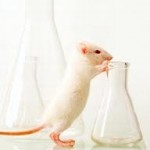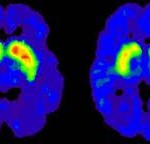By Elizabeth from the blog….
I am very pleased to present a guest post, created by Elizabeth, who has been a member of this blog community for at least a year. Thanks, Elizabeth, for your contributions until now, and especially for this fascinating post–
 The present “obesity epidemic” has given rise to public concern about the level of refined sugars, especially high-fructose corn syrup, in the North American diet. While we can all agree that an excess amount of sugar is probably not good for anyone, more controversial questions about the “addictive nature” of such sugar intake have also emerged. Public policy measures to curb access to this “addictive substance” (see NYC soda ban) are designed with intentions to prevent individuals from developing a “sugar dependency” and hopefully curb the rising rates of obesity. But, is overconsumption of these sweet and calorie-dense foods really reflective of a widespread “addiction” to sugar? Perhaps there is some truth to the matter, and perhaps we can understand this phenomenon better by looking at studies of drug intake.
The present “obesity epidemic” has given rise to public concern about the level of refined sugars, especially high-fructose corn syrup, in the North American diet. While we can all agree that an excess amount of sugar is probably not good for anyone, more controversial questions about the “addictive nature” of such sugar intake have also emerged. Public policy measures to curb access to this “addictive substance” (see NYC soda ban) are designed with intentions to prevent individuals from developing a “sugar dependency” and hopefully curb the rising rates of obesity. But, is overconsumption of these sweet and calorie-dense foods really reflective of a widespread “addiction” to sugar? Perhaps there is some truth to the matter, and perhaps we can understand this phenomenon better by looking at studies of drug intake.
Several years back, researcher Roy Wise argued that drug intake could be viewed as an “ingestive behavior.” He noted that animals who were limited to short periods of drug access at regular times throughout the day show signs of  “regulated drug intake” to maintain a steady blood serum drug level similar to “regulated food intake” to maintain energy balance. When the self-administration studies were halted, these animals displayed little, if any, signs of withdrawal. Thus, they were probably not really addicted or dependent on the drug at all.
“regulated drug intake” to maintain a steady blood serum drug level similar to “regulated food intake” to maintain energy balance. When the self-administration studies were halted, these animals displayed little, if any, signs of withdrawal. Thus, they were probably not really addicted or dependent on the drug at all.
So what could make this regulated intake spiral out of control?
Marc has provided a wealth of information regarding the predictors of drug addiction, including the effects of stress, low feelings of self-worth, and the need to compensate by “self-medicating.” I won’t belabor these points. What is interesting to me is that these factors seem to aid the development of “addiction-like” drug intake in animals — when the self-administering rodents escalate their use over time, pursue the drug in the face of punishment, and show physiological withdrawal symptoms. In other words, when they seem to become addicted.
So, additional factors — beyond drug availability — may be necessary to make the “ingestion” of drugs more “addiction-like.” Does this mean that the ingestion of foods can also be normal, versus addictive, depending on external factors?
 Indeed, stress and negative self-worth also play major roles in the development of eating disordered behavior (e.g., excessive caloric restriction, binge food intake, purging, etc..). Food and drug rewards act on the same neurotransmitter systems, so disruptions in reward circuitry can confer drug addiction and, likewise perhaps, change the meaning of food. Get this: If you want to get an animal to REALLY want to take a drug, you can deprive it of food.
Indeed, stress and negative self-worth also play major roles in the development of eating disordered behavior (e.g., excessive caloric restriction, binge food intake, purging, etc..). Food and drug rewards act on the same neurotransmitter systems, so disruptions in reward circuitry can confer drug addiction and, likewise perhaps, change the meaning of food. Get this: If you want to get an animal to REALLY want to take a drug, you can deprive it of food.  This suggests that dysregulated food intake cross-sensitizes with dysregulated drug intake (kind of like how abuse of one substance can lead to abuse of another). Basically, since the brain interprets the value of both food and drug rewards through similar circuits, alterations in these circuits can cause EXCESSIVE pursuit of both. The brain is saying “hey, I’m deprived of some necessary sustenance…give me more! The next time I get that reward, it’s going to be REALLY reinforcing, so I will seek it harder and make SURE I get all I can!” So, the next time drugs are encountered, we binge on them. The next time we get access to a sweet treat, we are likely to binge on that as well. In fact, there is a striking comorbidity between binge food intake and drug abuse.
This suggests that dysregulated food intake cross-sensitizes with dysregulated drug intake (kind of like how abuse of one substance can lead to abuse of another). Basically, since the brain interprets the value of both food and drug rewards through similar circuits, alterations in these circuits can cause EXCESSIVE pursuit of both. The brain is saying “hey, I’m deprived of some necessary sustenance…give me more! The next time I get that reward, it’s going to be REALLY reinforcing, so I will seek it harder and make SURE I get all I can!” So, the next time drugs are encountered, we binge on them. The next time we get access to a sweet treat, we are likely to binge on that as well. In fact, there is a striking comorbidity between binge food intake and drug abuse.
 What this means is that there can be addiction-like components to both binge eating and drug taking. The super-sensitivity to both rewards appears to be greatly influenced by the individual’s history: Have there been significant life stressors? Has the individual been deprived? (Think of those with eating disorders who have excessively restricted their caloric intake in order to look or feel thin.) These factors come together to promote a sort of “super-craving” — for food, drugs, or both.
What this means is that there can be addiction-like components to both binge eating and drug taking. The super-sensitivity to both rewards appears to be greatly influenced by the individual’s history: Have there been significant life stressors? Has the individual been deprived? (Think of those with eating disorders who have excessively restricted their caloric intake in order to look or feel thin.) These factors come together to promote a sort of “super-craving” — for food, drugs, or both.
I’m not sure that these factors are widespread enough to completely explain the obesity epidemic, but they sure help put it in context.

Leave a Reply to Persephone Cancel reply